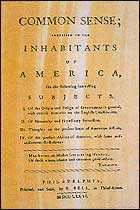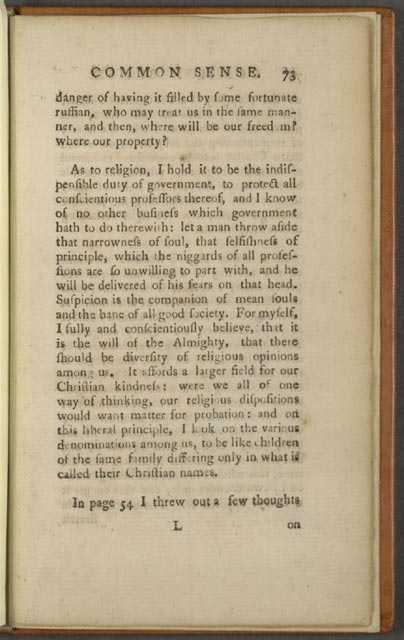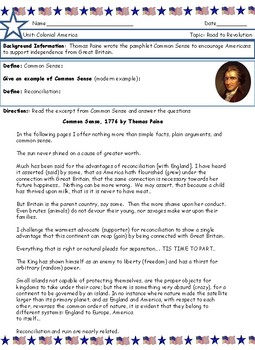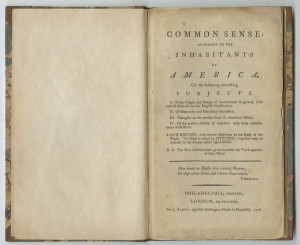



He managed to land a government job as an excise tax collector, but was fired twice, the second time after leading an unsuccessful campaign to get higher wages for him and his colleagues.

He did a brief stint as a sailor on a privateer ship at age 20, and tried and failed to start a craftsman business. Born in 1737 in England to a financially struggling family, he had to quit school at age 13 to labor as an apprentice in his father’s corset shop. Paine’s provocative pamphlet was the first real success in his life. Title page from Thomas Payne's Common Sense pamphlet, Who Was Thomas Paine and Why Did He Write 'Common Sense'? And even after the victory over the British, Paine’s influence persisted, and some of his ideas found their way into the U.S. By the end of the Revolutionary War, an estimated half-million copies were in circulation throughout the colonies.īy promoting the idea of American exceptionalism and the need to form a new nation to realize its promise, Paine’s pamphlet not only attracted public support for the Revolution, but put the rebellion’s leaders under pressure to declare independence. “We have it in our power to begin the world over again.”Ĭenturies before the existence of the internet, Common Sense managed to go viral, selling an estimated 500,000 copies. “We have every opportunity and every encouragement before us, to form the noblest purest constitution on the face of the earth,” Paine wrote. But its author also made an equally eloquent argument that Americans had a unique opportunity to change the course of history by creating a new sort of government in which people were free and had the power to rule themselves. Common Sense, written by Thomas Paine and first published in Philadelphia in January 1776, was in part a scathing polemic against the injustice of rule by a king. Even after armed hostilities broke out between the American colonists and British forces in 1775, many prominent colonists seemed reluctant to consider the idea of actually breaking away from Britain, and instead insisted that they were still its loyal subjects, even as they resisted what they saw as its tyrannical laws and unfair taxation.īut a single 47-page pamphlet-the 18th-century equivalent of a paperback book-did a lot to quickly change that, and shift American sentiment toward independence.


 0 kommentar(er)
0 kommentar(er)
